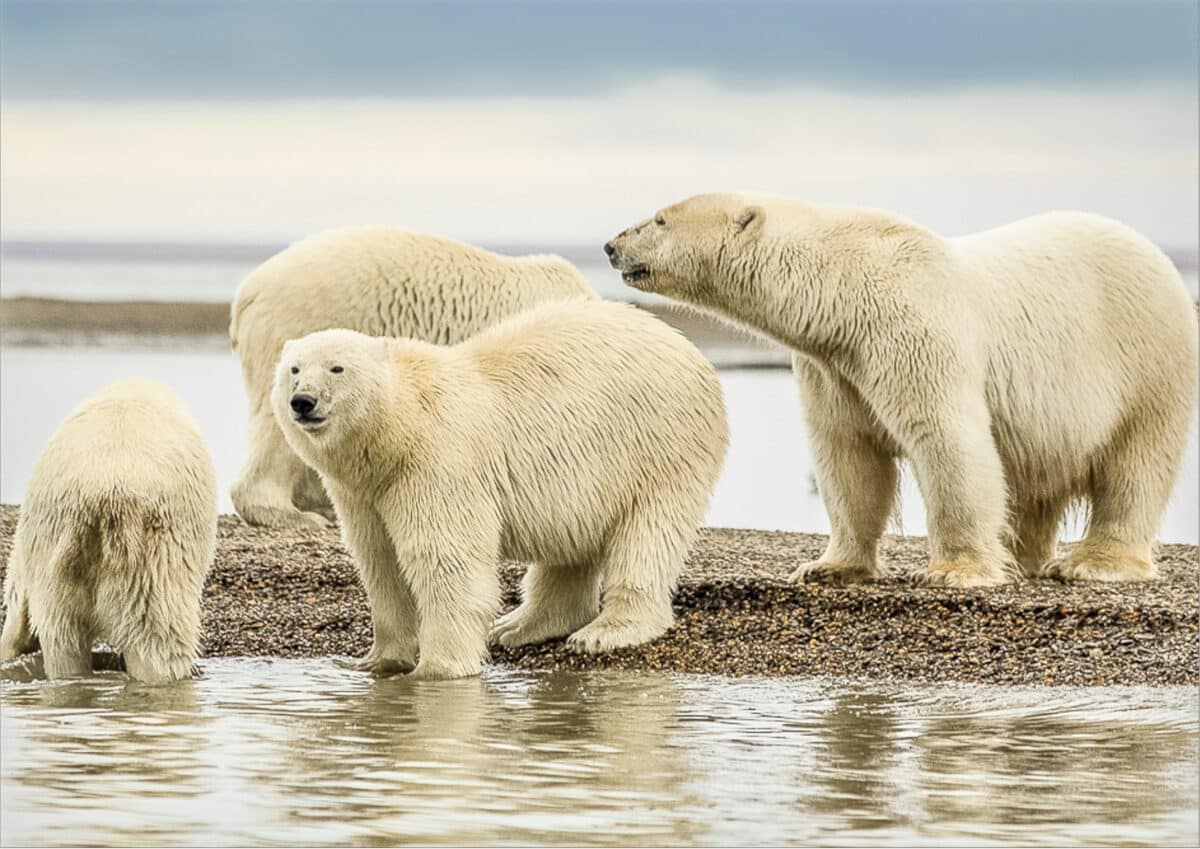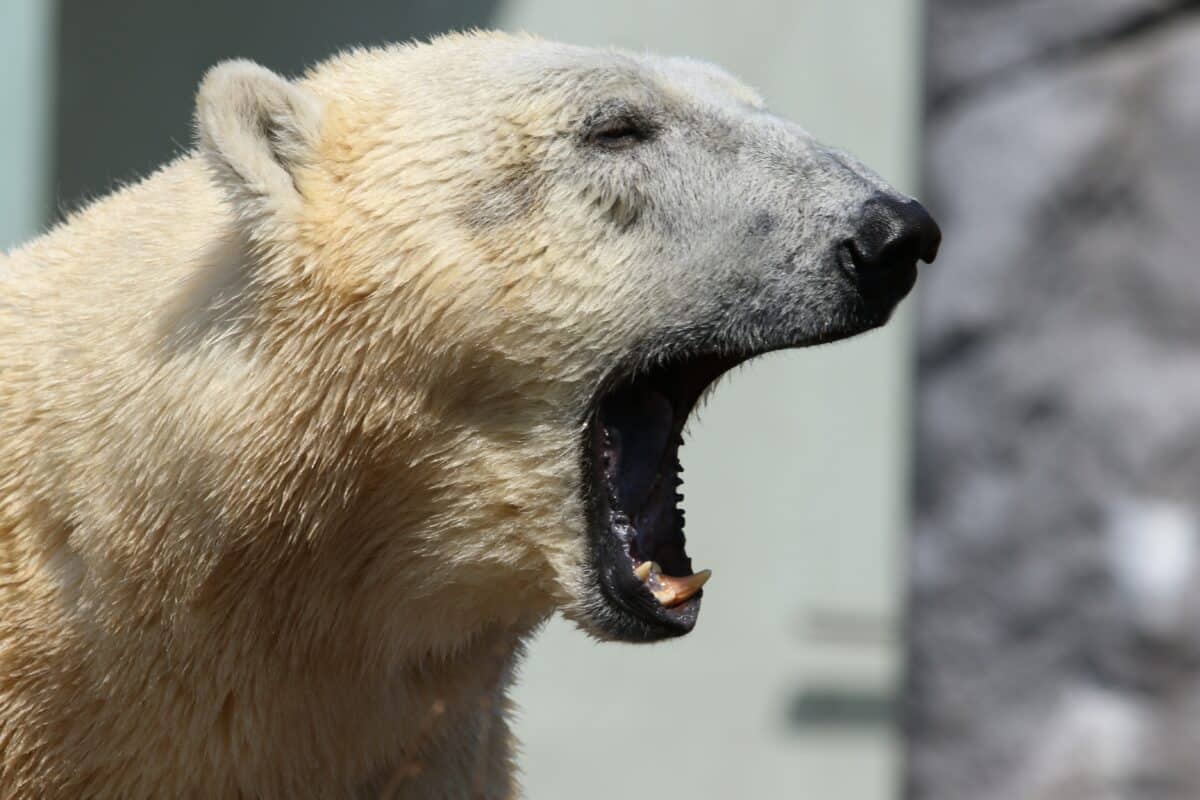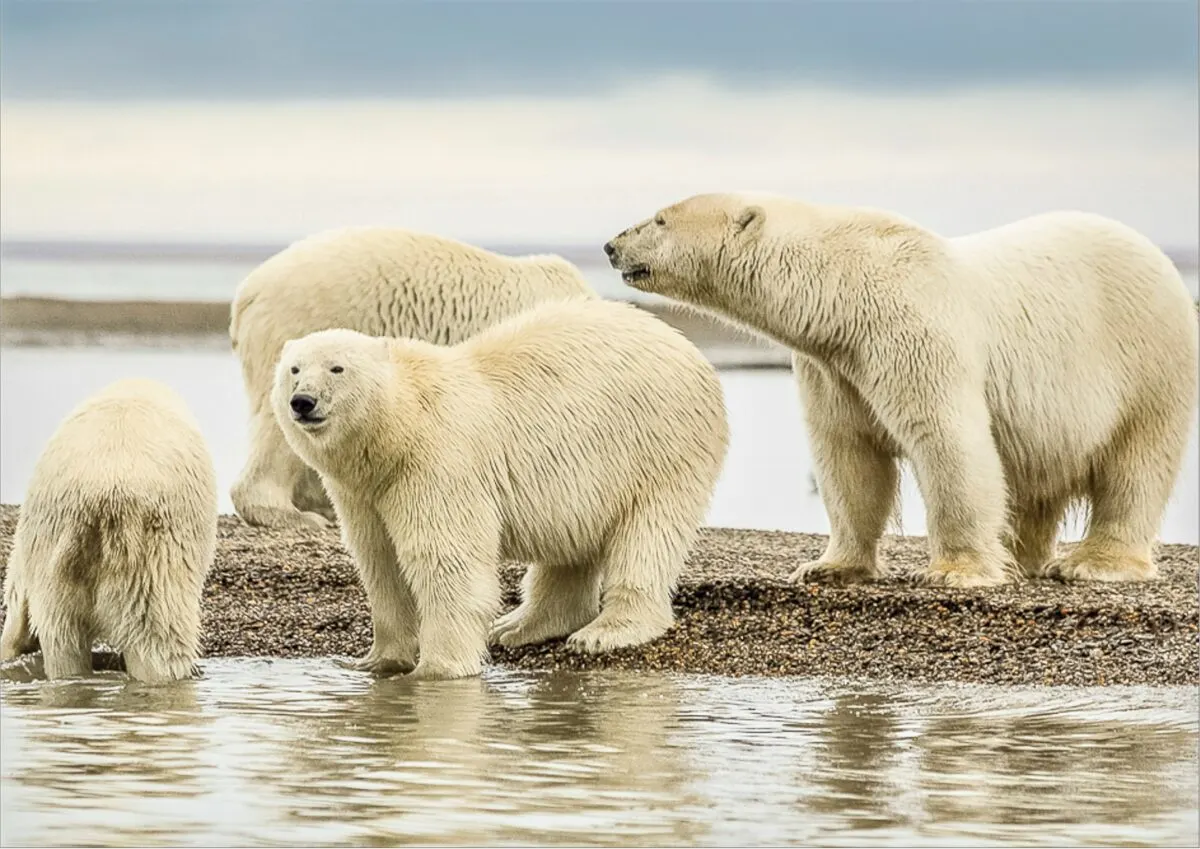A dramatic scene unfolds in the stark and icy wilderness of the Arctic. A group of polar bears, the region’s formidable apex predators, are engrossed in a rare feast – a whale carcass.
Amidst this raw display of nature’s cycle, one brave man stands at a daring proximity, adding a layer of human intrigue to this captivating spectacle.
This tale is of survival, courage, and the intricate dance of life and death in the Arctic. Welcome to – Polar Bears Feasting on a Whale Carcass Featuring One Brave Man.

The Arctic’s Apex Predators
In the harsh, icy landscapes of the Arctic, survival is a constant battle. The polar bears, the largest land predators on Earth, are the most formidable creatures to inhabit this frozen wilderness. These majestic beasts, with their thick, white fur and powerful bodies, are perfectly adapted to their environment. They are excellent swimmers, capable of covering long distances in the icy waters, and their keen sense of smell can detect prey from miles away.
One of the most fascinating aspects of polar bear behavior is their feeding habits. As apex predators, they primarily feed on seals, but they are opportunistic and will consume anything they can catch, including fish, birds, and even whales.
A Feast in the Ice

In a rare and captivating scene, a group of polar bears are tearing apart a whale carcass. This is not a common sight, as whales are not typically part of a polar bear’s diet due to the difficulty of hunting such large and powerful creatures. However, a dead or stranded whale provides a veritable feast for these bears, allowing them to consume much food at once.
The image captures the raw, brutal reality of nature and the bears’ social behavior. Polar bears are generally solitary animals, but they will gather in large numbers at a substantial food source, like a whale carcass. These gatherings can sometimes include dozens of bears, and while there may be some squabbling, the bears generally tolerate each other’s presence during these feasts.
The Brave Observer
The photo also features a human observer standing 25 feet from the feeding bears. This individual’s presence adds an extra layer of intrigue to the scene.
The observer seems at ease despite the apparent danger, demonstrating the complex relationship between humans and polar bears in these regions. It’s a delicate balance shaped by mutual respect and understanding of the harsh realities of life in the Arctic.
The Circle of Life
This scene is a stark reminder of the circle of life in the Arctic. While tragic, the death of a whale provides sustenance for the polar bears, helping them survive in their harsh environment. It’s a difficult yet essential part of the ecosystem, highlighting the interconnectedness of all life forms in this icy wilderness.
The Majestic Polar Bear: A Symbol of the Arctic
Polar bears are more than just the apex predators of the Arctic; they are symbols of the region itself. Their survival and well-being are closely tied to the health of the Arctic ecosystem. As climate change continues to impact this fragile environment, the fate of the polar bears hangs in the balance. Observing and understanding their behavior, as in the scene with the whale carcass, is crucial for their conservation and preserving the Arctic.
The Bottomline
In conclusion, the image of the polar bears feasting on a whale carcass is a powerful depiction of life in the Arctic. It showcases the polar bears’ raw power and survival instincts the harsh realities of the Arctic environment. It’s a stark yet captivating glimpse into the world of these majestic creatures, reminding us of the importance of their conservation and the preservation of their icy home.
Thanks for following this article about Polar Bears Feasting on a Whale Carcass featuring One Brave Man.
Next up in the animal kingdom:
- The Buffalo That Got Up and Walked Away from the Lions’ Feast
- Donkey Defends Farm from Hyena
- The Peregrine Falcon’s Deadly Diving at 183mph
- A Sunfish’s Journey from Microscopic to Monumental
Join our Forum for free today!

- 400-Pound Therapy Llamas named Beni and Prince Ease Travelers’ Stress at Portland International Airport - July 22, 2024
- Woman Captured Howling with Gigantic White Wolf in Beautiful Footage - July 22, 2024
- Florida Police Urge Public to Stop Taking Selfies with ‘Depressed’ Black Bear off Highway 98 in Santa Rosa Beach - July 22, 2024

